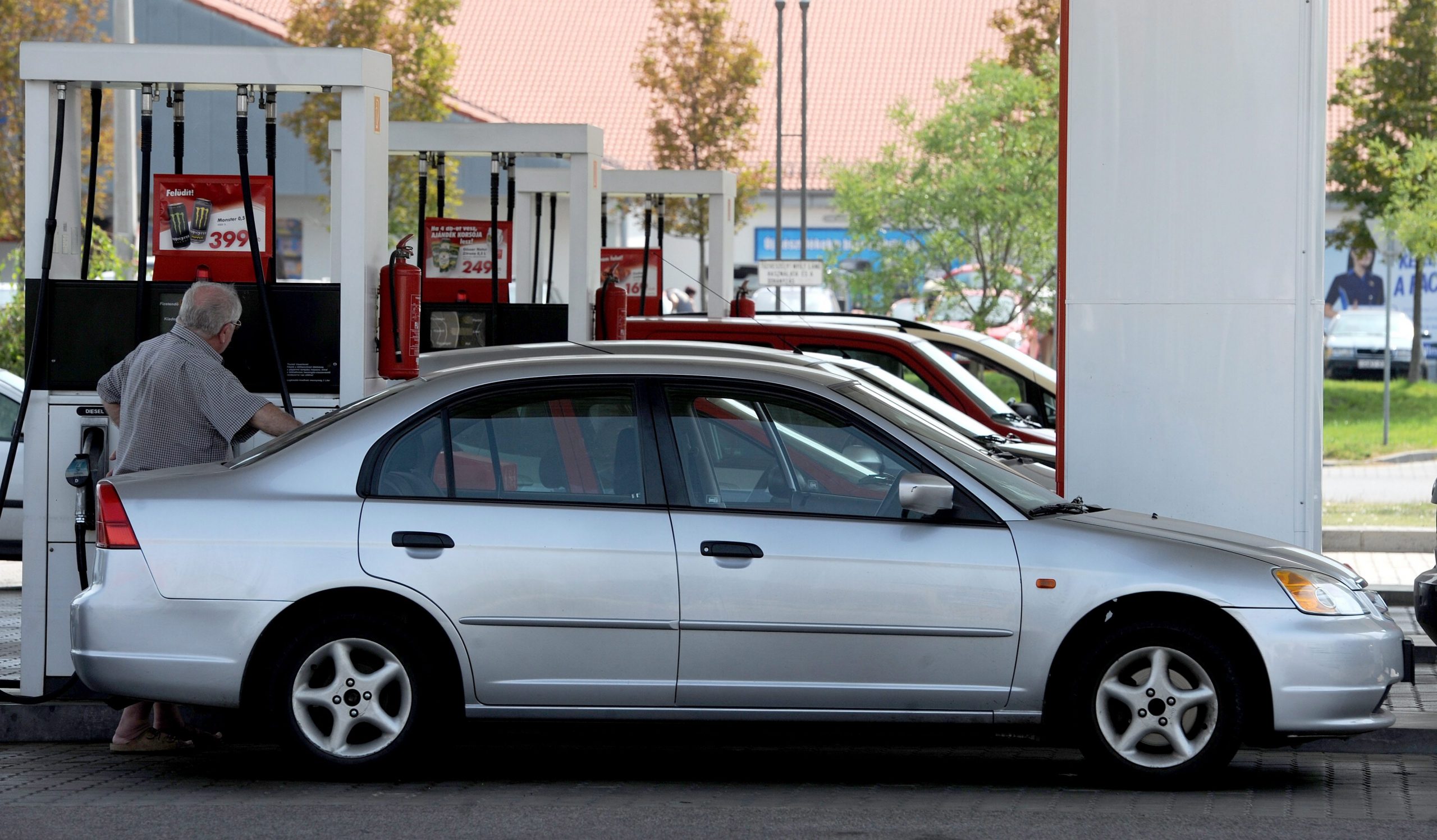
Trying to avoid running a business at a loss by suspending services and cutting opening hours has been made virtually impossible by the government after its decision on freezing the prices of the regular 95 petrol and gas oil. While petrol wholesale distributors will have to swallow the cost of price freezing, a major loss won’t be expected for now.
Alongside worldwide tendencies, fuel prices have skyrocketed during the past year in Hungary. According to fuel price comparison site holtankoljak.hu, at the end of last year, the average petrol price per liter was HUF 384 (EUR 1.05) which last week climbed all the way up to HUF 508. As for gas oil, the same tendency can be seen as its price went from HUF 399 (EUR 1.1) to HUF 515 (EUR 1.4). In addition, one year ago in November, petrol only cost HUF 332 (EUR 0.9).
The government’s move came after weeks of political pressure and hesitation. On Thursday, the Orbán administration eventually announced the maximum prices of both 95 petrol and diesel at HUF 480 (EUR 1.3).
Lately, the government’s decree has come out with details on the new rules. It actually contains severe restrictions and potential sanctions for the retail providers:
“Acquisition costs cannot be influenced, and tax rates and duties, and the excise tax cannot just be suddenly changed because of the EU ruling. Only small and wholesale margins can be reduced, meaning that these firms will swallow the cost of price-fixing,” explained ING’s senior analyst to Szabad Európa (Free Europe) right after the government’s announcement. Péter Virovácz added that the restriction would less affect larger companies; smaller chains, on the other hand, could face more serious problems.
In the first impact of the decision, state oil company MOL’s stock price began to fall last week. After that, it booked 7% of decline at the start, but appears to have already rebounded. In addition, the oil giant may only fall short of some 1-2% of income by the end of the year, according to Telex‘s calculations, made by Erste’s oil market analyst, Tamás Pletser.
Important to note, that the price freeze doesn’t apply to all types of fuels: premium category fuels don’t fall under the regulation. According to an energy expert, retailers might want to make up for the loss by further raising the price of better quality premium products (which are foreseen to go up anyway due to the world trends).
While the government regulated the retail prices, it didn’t intervene with the wholesale pricing side. According to rough calculations, (made with the number available at the time of the announcement), the move would eat up only their profit margin (HUF 25-30- EUR 0.07-0.08 per liter).
Telex‘s analysis also found that the price freeze wouldn’t generate loss for the wholesalers for now, they may even book some profit.
But this would certainly depend on the future world trends, oil prices, and the wholesale price, which as of latest news, will further increase from Wednesday by HUF 5 (EUR 0.014).
featured image Imre Földi/MTI